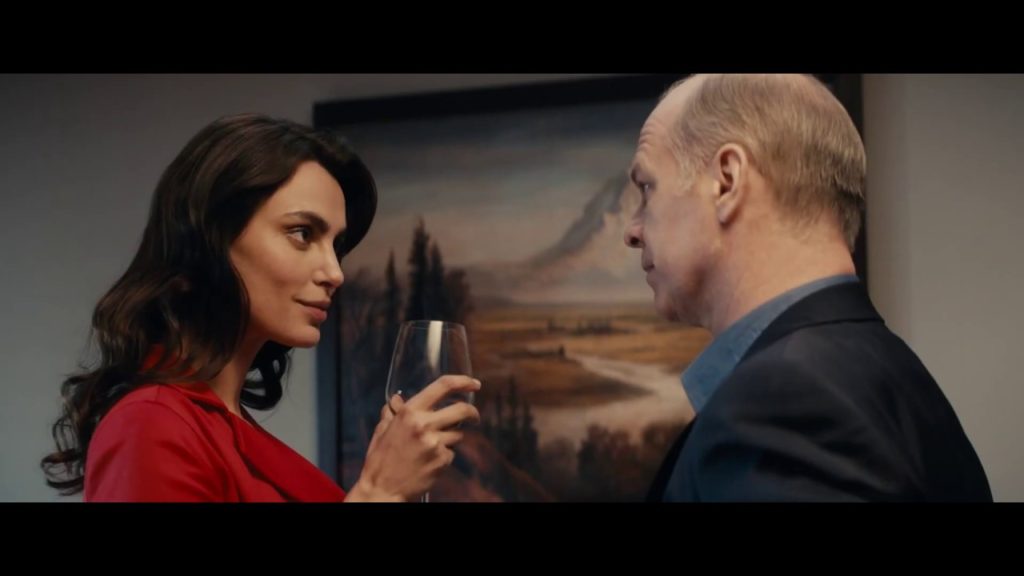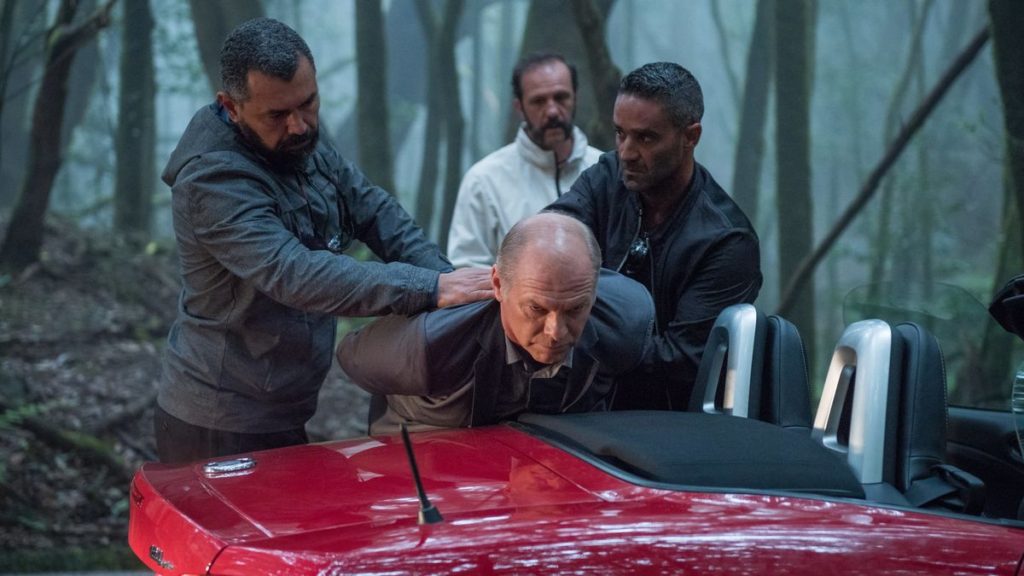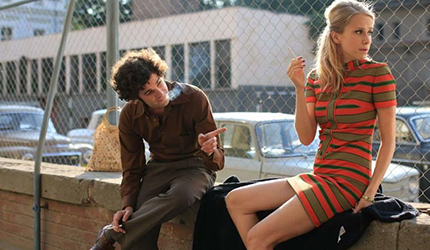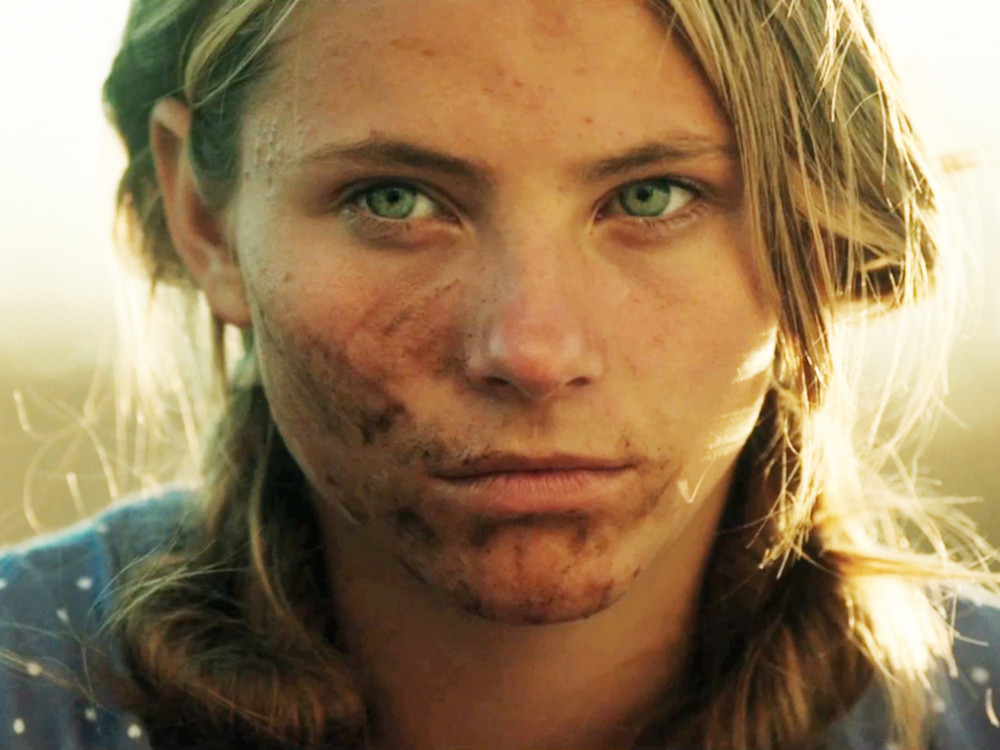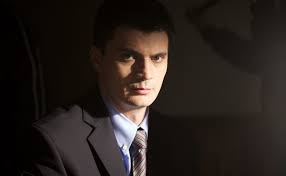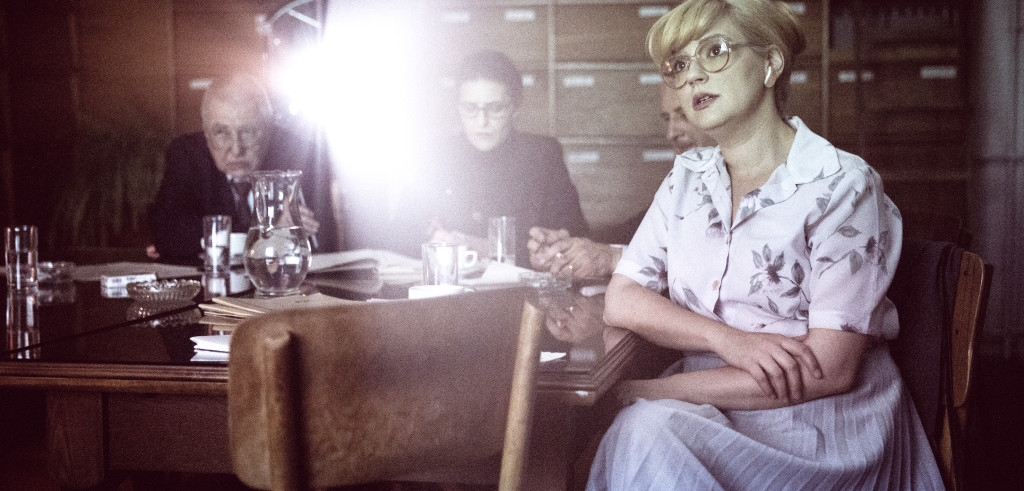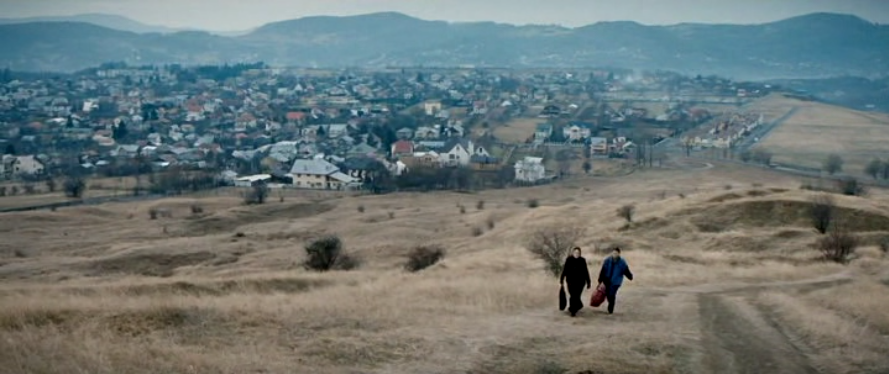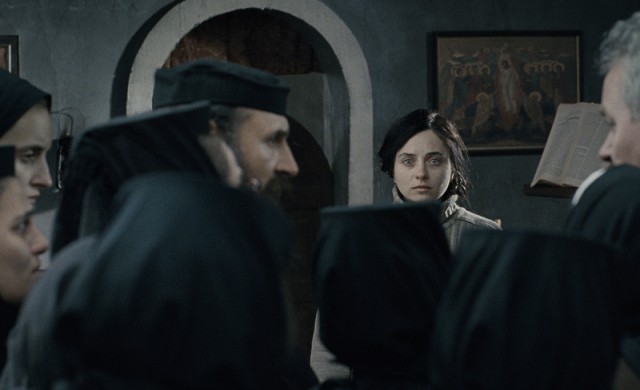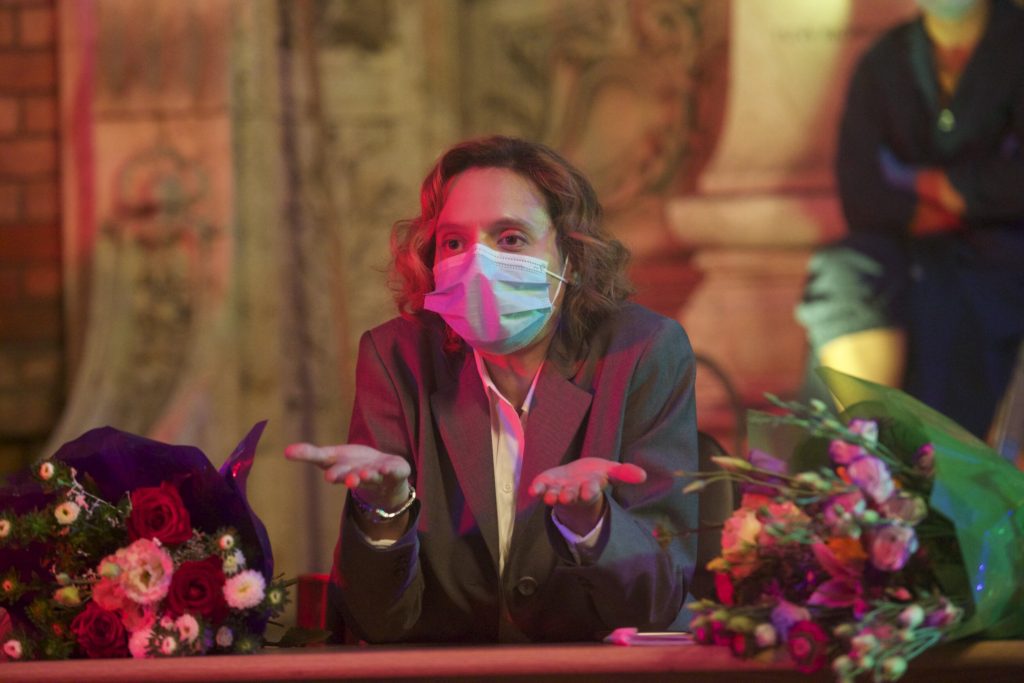
The Romanian absurdist comedy Bad Luck Banging or Loony Porn is unlike anything feature film you’ve ever seen. For one thing, it begins with a three-and-a-half minute amateur sex video. The couple is having sex that is playful, enthusiastic and highly verbal. The sex is not simulated.
The couple turns out to be married. The wife is Emi (Katia Pascariu), a teacher of Romanian history at an upscale private school in Bucharest. Unfortunately, her husband takes their laptop to a tech shop for service and the sex video appears on the Internet – and goes viral within her school’s community.
Bad Luck Banging or Loony Porn is divided into three chapters, each approximately 30 minutes. In the first, Emi leaves their crowded apartment and walks, COVID-masked, through Bucharest to her boss’ apartment and then to school, stopping to receive a series of phone calls with ever worsening news about the video.
Beginning with the chaos of daily family life crammed in tight quarters, and spilling out through the city, this is deadpan comedy at its best. Writer-dirctor Radu Jude’s camera wryly points out the mixed martial arts studio Super Kombat Romania next door to a more aspirational Caffe Le Strada.
Jude depicts Bucharest street life as boisterous and earthy, with everyone unleashing torrents of foul invective at the slightest annoyance. I’m an aficionado of vulgarities, and the best in this film comes from the driver of a vehicle whom Emi points out is illegally parked.
Part 2 takes a break from Emi’s story – it’s a series of brief vignettes highlighting the most ridiculous and outrageous excesses of Romanian history, including Nazi collaboration and the Ceaușescu communist dictatorship. Most of the vignettes are funny, and most are wickedly pointed. Some are just refreshingly silly, like a socially-distanced folk dance and the funniest elevator doors I’ve ever seen.
In part 3, the school hosts a meeting of the parents to discuss the sex video – and whether Emi should keep her job. Of course, this is mortifying for Emi.
[MILD SPOILER IN THIS PARAGRAPH] The parents insist on playing the sex video at the meeting, so Emi is subjected to watching them watch her have sex – with a running commentary from the audience. Of course, if the video is offensive, then the parents are offending new viewers or re-offending those who have already seen it. But this is not about reason – it is about slut shaming.
Context completely escapes the parents. Emi’s consensual sex in her home with her husband is entirely her right; she didn’t publish the video, and she is the victim of its publication. Nevertheless, the parents plunge ahead into a witch trial that would have made colonial Salem proud, worsened by a dose of jawdropping antisemitism. That everyone is masked for the pandemic adds another layer of ridiculousness.
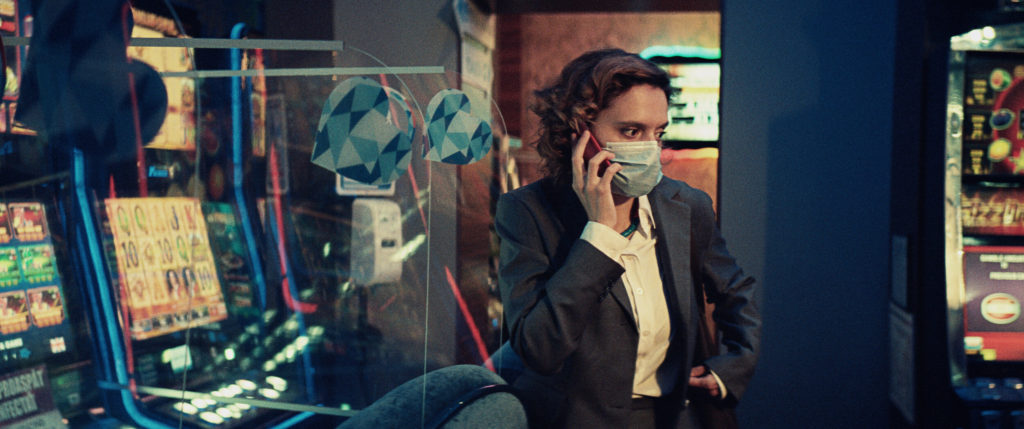
Through it all, Emi steadfastly tries to salvage her dignity and impose some measure of intellectual consistency on others. She is the last stand of rationality. As Emi, Katia Pascariu is on camera in every scene of the first and third segments of Bad Luck Banging or Loony Porn, and her performance is superb. Pascariu’s Emi is a strong and confident woman thrust into a most humiliating and desperate situation, who keeps her poise…until even she cannot any longer.
What does it all amount to? Writer-director Radu Jude is zeroing in on human foibles, some specific to Romanian society and some universal. Jude has an unsparing, clear-eyed view of human nature, and Bad Luck Banging or Loony Porn nails sexism and misogyny in particular.
Jude’s previous features were the much acclaimed Aferim! (which I didn’t like) and I Do Not Care If We Go Down in HIstory as Barbarians. He was the assistant director of Cristi Pulu’s high brow art house hit The Death of Mr. Lazarescu.
Beyond its title, Bad Luck Banging or Loony Porn is unusual for its hardcore prologue and the mid-movie diversion from the plot. Those aspects may not be enjoyed by everyone; I also recognize that not everybody dials into deadpan absurdism as I do. Nevertheless, Bad Luck Banging or Loony Porn is continuously engaging and very funny.
Bad Luck Banging or Loony Porn is Romania’s submission for the Best Intentional Picture Oscar, and I believe that it will be nominated. It appears on at least 20 critic’s top ten lists, including #1 on J. Hoberman’s and #2 on A.O. Scott’s. I streamed Bad Luck Banging or Loony Porn on Drafthouse On Demand; it is also streaming on AppleTV.

